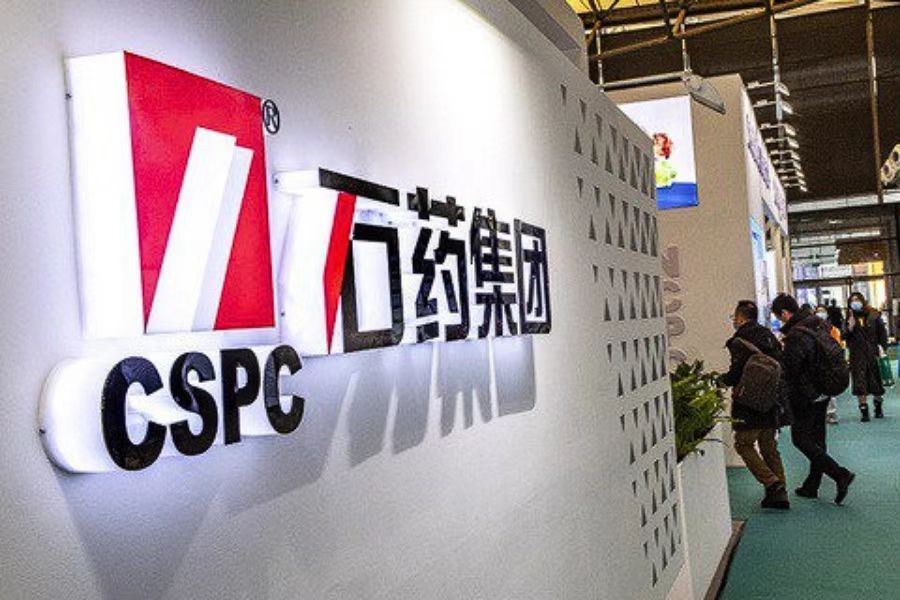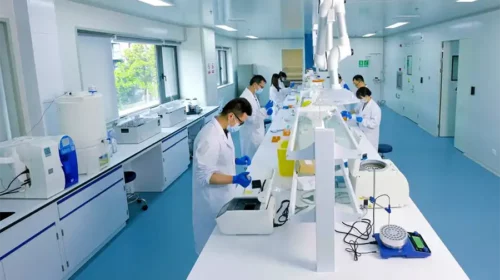CSPC Pharma wins China’s mRNA vaccine race, but just not fast enough

Drugmaker CSPC Pharma gets the green light to produce China’s first homegrown mRNA vaccine, but the breakthrough comes too late in the pandemic to impress investors
Key Takeaways:
- News of marketing approval for China’s first mRNA vaccine falls flat with investors, who worry the drug is being rushed to market before Phase 3 trials are complete
- As the pandemic abates, the market for the vaccine is shrinking rapidly
By Ellie Si
Timing is everything, so the saying goes, and it’s certainly true for the maker of China’s first domestically developed mRNA vaccine against Covid.
CSPC Pharmaceutical Group Ltd. (1093.HK) announced last week it had gained regulatory approval to market its new Covid vaccine, beating a host of rivals to become the first commercial producer of a Chinese-made mRNA drug. The company also reported a revenue rise for last year. Under different circumstances the news would have triggered a market rally, but the share price plunged instead.
Coming at the tail end of the pandemic rather than at its height, the emergency-use approval for the mRNA vaccine fell flat with investors, who were worried about the speed at which the drug was being brought to market.
The day after the news, the stock plummeted 7.3% to HK$7.74, shrinking the company’s market valuation to barely HK$90 billion ($11.5 billion).
The level of pandemic risk is a key factor. Most Chinese have already been immunized with other anti-Covid vaccines. Meanwhile, the government removed strict pandemic controls last December and has since reported no major outbreaks. The scope for the vaccine market is contracting rapidly, leaving investors pessimistic about the profit prospects.
CSPC is a major Chinese pharmaceutical company with a range of products in development production or sales. The company’s website describes 36 products for various diseases that have generated sales of more than 100 million yuan ($14.5 million).
When it announced the vaccine approval, CSPC Pharma also published annual results showing that its revenue grew 11% to 30.9 billion yuan last year. The figure included 24.5 billion yuan in revenue from the business of finished drugs, which was up by 8.1%, and 4.45 billion yuan related to its bulk products, a rise of 16.5%.
Less than a year in clinical trials
The main earners are treatments for neurological conditions and cancers. Neurological drugs made up the biggest revenue share at 8.11 billion yuan, 7.5% more than the previous year, while revenue from cancer drugs dropped 3.8% to 7.42 billion yuan.
The company boasts many product pipelines that keep sending new drugs to market. Last year, it introduced a drug to treat T-cell lymphoma and another for follicular lymphoma. In addition, several of its generic drugs have been selected for the government’s procurement program. The company has thus diversified its revenue streams and better balanced its product portfolio.
But investors have paid most attention to the Covid mRNA vaccine, SYS6006, which has become the first such domestically developed jab to be cleared for use in China. This type uses a lab-developed messenger RNA method to instruct cells to make specific antibodies, unlike vaccines that use a deactivated form of a virus.
The CSPC vaccine entered clinical trials in April 2022 with approval from China’s National Medical Products Administration (NMPA). It raced through Phase 1 and 2 clinical trials in a matter of months, and was judged to be effective and safe in protecting against Covid infections.
The trials also probed the effects of having an mRNA injection after doses of other Covid vaccines.
Most of the vaccines administered in China were based on inactivated forms of the virus, using products developed by Sinopharm (1099.HK) and Sinovac (SVA.US), as well as an adenovirus vector vaccine from CanSino Biologics (6185.HK; 688185.SH). Therefore, tests to determine the booster impact of an mRNA vaccine were particularly significant.
The company said 4,000 booster trial sessions were conducted during the pandemic with recombinant protein vaccines as the control and an observation period of 28 days. The CSPC Pharma vaccine was shown to have a protection effect of 70.2% seven to 28 days after injection, rising to 85.3% after 14 to 28 days. And researchers found that an mRNA injection after two or three doses of other inactivated-virus vaccines can better fight variants such as Omicron.
Demand weakens as pandemic abates
However, the fast progress has caused concerns among investors. Firstly, the vaccine is yet to complete larger scale Phase 3 clinical trials. Even if it is proven to be highly effective, the vaccine enters a shrinking market now that the pandemic has retreated across the world.
In technology terms, mRNA is the cutting edge of immunization. Covid mRNA vaccines made by Pfizer (PFE.US) in partnership with BioNTech (BNTX.US), or by drugmaker Moderna (MRNA.US), were successfully marketed during the pandemic. Pfizer’s mRNA vaccine contributed $37.8 billion to its 2022 revenue, nearly 40% of the total.
The mRNA vaccines sold overseas are still not available in mainland China. In 2020, Fosun Pharma (2196.HK; 600196.SH) paid tens of millions of dollars to BioNTech for the exclusive right to develop and commercialize the Covid vaccine Comirnaty in China. But after three years the vaccine is still only available in Hong Kong, Macau and Taiwan.
That explains why many Chinese companies joined a gold rush to develop mRNA vaccines. Abogen Biosciences, an early competitor, got more $700 million and $300 million in two rounds of fundraising in 2021, sending its valuation above $20 billion.
So far this year, CanSino, Walvax Biotechnology (300142.SZ) and Sinopharm have also reported progress in developing Covid mRNA vaccines. But CSPC Pharma is the first contender to bring its vaccine to market. Though late out of the starting blocks, it crossed the approval finishing line less than a year after launching clinical trials.
But even the winners cannot dodge the rapidly contracting market for Covid vaccines.
Trailblazer Pfizer, which reported more than $100 billion in revenue last year, has cut its forecast for this year to between $67 billion and $71 billion on an expected drop in Covid-related income. The Chinese vaccine producer CanSino already reported a loss last year due to the slowdown in the Covid vaccine market, and its share price has fallen by more than 90% from the HK$450 peak in 2021.
The marketing approval for CSPC Pharma’s mRNA vaccine is a breakthrough for China’s domestic drug industry. But the achievement was ultimately outpaced by the pandemic, which has now passed its peak, limiting the money-making potential for Covid vaccines.
To subscribe to Bamboo Works weekly free newsletter, click here






